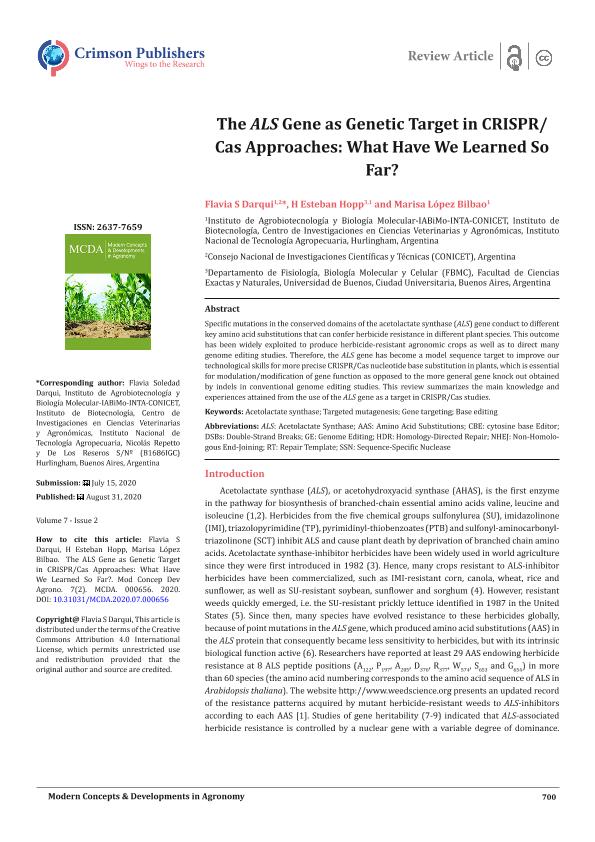Artículo
The ALS Gene as Genetic Target in CRISPR/ Cas Approaches: What Have We Learned So Far?
Fecha de publicación:
08/2020
Editorial:
Crimson Publisher
Revista:
Modern Concepts & Developments in Agronomy
e-ISSN:
2637-7659
Idioma:
Inglés
Tipo de recurso:
Artículo publicado
Clasificación temática:
Resumen
Specific mutations in the conserved domains of the acetolactate synthase (ALS) gene conduct to different key amino acid substitutions that can confer herbicide resistance in different plant species. This outcome has been widely exploited to produce herbicide-resistant agronomic crops as well as to direct many genome editing studies. Therefore, the ALS gene has become a model sequence target to improve our technological skills for more precise CRISPR/Cas nucleotide base substitution in plants, which is essential for modulation/modification of gene function as opposed to the more general gene knock out obtained by indels in conventional genome editing studies. This review summarizes the main knowledge and experiences attained from the use of the ALS gene as a target in CRISPR/Cas studies.
Palabras clave:
ACETOLACTATE SYNTHASE
,
TARGETED MUTAGENESIS
,
GENE TARGETING
,
BASE EDITING
Archivos asociados
Licencia
Identificadores
Colecciones
Articulos (IABIMO)
Articulos de INSTITUTO DE AGROBIOTECNOLOGIA Y BIOLOGIA MOLECULAR
Articulos de INSTITUTO DE AGROBIOTECNOLOGIA Y BIOLOGIA MOLECULAR
Citación
Darqui, Flavia Soledad; Hopp, Horacio Esteban; Lopez Bilbao, Marisa; The ALS Gene as Genetic Target in CRISPR/ Cas Approaches: What Have We Learned So Far?; Crimson Publisher; Modern Concepts & Developments in Agronomy; 7; 2; 8-2020; 700-711
Compartir
Altmétricas




